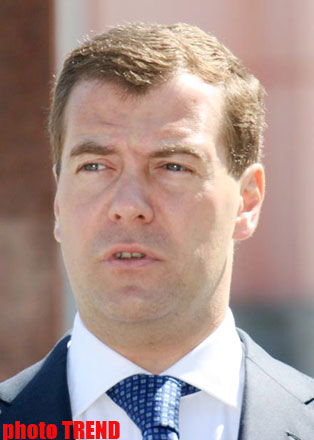Russian President Dmitry Medvedev said Moscow would evaluate the revised U.S. missile defense plan in eastern Europe from the perspective of Russia's national security, the Itar-Tass news agency reported on Monday.
Russian experts will discuss the new U.S. missile shield system in detail and assess it considering Russia's national security interests, Medvedev told the Serbian newspaper Vecernje Novosti before visiting the Eastern European country, Xinhua reported.
As for nuclear arms reduction, Medvedev said Russia is making every effort to conclude a new nuclear arms cut treaty by the end of this year.
Russia insists that nuclear weapons not be used, but admits that they have safeguarded global strategic stability and security in the past decades, said Medvedev.
Russia believes that it is necessary to keep a strategic balance with the United States, and it will maintain its nuclear arms at the lowest level that is needed to keep Russia and its allies safe, the president said.
The Strategic Arms Reduction Treaty (START-I), signed in 1991 between the Soviet Union and the United States, obliges both sides to reduce their nuclear warheads to 6,000 and delivery vehicles to 1,600.
Russian and U.S. negotiators have held several rounds of talks to work out a replacement for the START-I before it expires this December.
Russia insists on linking a new nuclear weapons cut deal to the U.S. anti-missile shield. Last month, U.S. President Barack Obama announced that Washington would abandon a Bush-era missile defense shield program while initiating a "phased, adaptive approach" in Eastern Europe.






